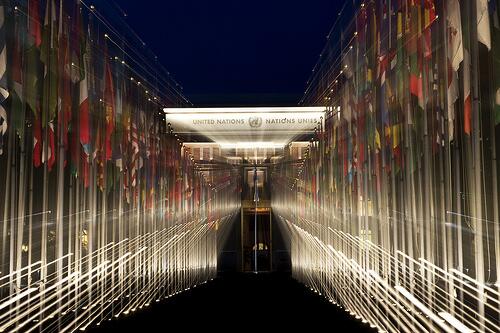4th session of the open-ended intergovernmental working group to elaborate the content of an international regulatory framework on the regulation, monitoring and oversight of the activities of private military and security companies, 17-21 April 2023
General comments by the International Commission of Jurists, 17 April 2023
Mr. Chairperson- Rapporteur,
The International Commission of Jurists welcomes the opportunity to address this Fourth session of the Intergovernmental working Group (IGWG) to elaborate this much needed international instrument for the regulation and oversight of Private Military and Security Companies.
The ICJ thanks the Chair-Rapporteur and his team for the 2nd revised draft of the Regulatory Framework and the preliminary informal consultations on a draft held on 1 and 2 December. The Second Revised draft for discussion during this week presents important clarifications in the text and improvements, while leaving still pending some outstanding issues regarding: art 4 on accountability for serious criminal conduct, art 3.1 about the scope of the instrument which is currently unduly limited to transnational activities, and art 11 about the rules on the use of force and weapons to be followed by PMSCs, still insufficient. We hope this session will make substantive progress on those issues and others.
At present, there is a general lack of adequate accountability for the conduct of PMSCs globally. This creates a permissive environment of impunity for many unlawful killings, torture and ill-treatment and other violations and abuses committed by PMSC personnel.
This year, we commemorate 20 years of the start of the invasion of Iraq by the US, the UK and their allies. According to figures from Brown University and published by the New York Times, more than 200,000 civilians died in the conflict while some 3,650 US private contractors also lost their lives in Iraq in the conflict.
There has been almost no accountability or access to effective remedies for victims of the Iraq conflict. However, the situation in Iraq and other similar situations spurred a series of initiatives in and among States, and in the United Nations system, including the adoption of the Montreux Document on Pertinent International law obligations for States relating to PMSCs, the International Code of Conduct for PMSCs and this IGWG.
Some 20 years after the beginning of the armed conflict Iraq, PMSCs continue to play an instrumental role in armed conflicts, such as in Ukraine and in the Sahel, where the so-called Wagner PMSC continues operating, committing gross abuses and violations with impunity.
The proposal for an international Regulatory Framework for PMSCs has the potential to provide much needed impetus for the regulation, oversight and accountability of PMSCs. This is important for the protection of PMSC personnel, the civilian population and even the combatants in armed conflict. The Regulatory Framework will do so only if it is firmly grounded on existing international law and principles and if it clearly provides for obligations to address accountability in national and transnational settings, providing for access to effective remedies and reparations for victims and clear rules on the role of PMSCs in conflict and peacetime.
Much of the potential of this Regulatory Framework hinges in its character as a binding instrument. The ICJ considers that a legally binding instrument would be critical to help ensure respect for its provisions.
The ICJ stresses that the lack of clarity as to the binding character of this instrument is an obstacle for the discussion and agreement on the content. Many of the provisions in the Draft might be ill-placed, or be differently drafted, depending on the binding character of the instrument. We recommend that this issue be resolved as early as possible.
It is important that the work of the IGWG is informed not only by the input of states, but also of civil society organizations and other stakeholders. We trust that under your guidance Chair- Rapporteur, there will be renewed efforts to disseminate information about these negotiations and involve many more civil society groups, especially from the Global South and from areas particularly impacted by the PMSCs.
Finally, given the complexity of the matters under the discussion and the limited time available, we trust that adequate additional time will be available for all participants to submit their written comments and proposals after this session.
Thank you.

